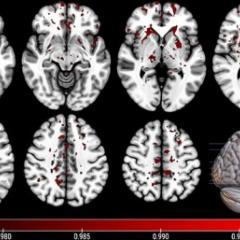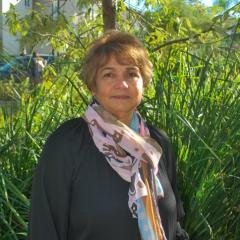Improving the impact of high dementia rates on Indigenous Australians and communities is the focus of a University of Queensland-led telehealth project with a global track record of success.
Partnering with the Queensland Aboriginal and Islander Health Council and Metro South Health, DementiaECHO is facilitating ‘round-table’ learning between Indigenous health services and a specialist dementia team from the Princess Alexandra Hospital.
UQ Centre for Online Health Director Professor Anthony Smith said DementiaECHO aimed to increase local capacity to care for Indigenous Australians in remote, rural and urban communities.
“The prevalence of dementia in Aboriginal and Torres Strait Islander communities is one of the highest in the world, with rates three to five times higher than their non-Indigenous counterparts,” Professor Smith said.
“Aboriginal and Torres Strait Islander peoples are at particular risk of early-onset dementia, commencing from 45 years of age.
“Although it is known that support for people with dementia can minimise the impact on the individual and their community, poor access to health services is an ongoing issue for Aboriginal and Torres Strait Islander communities.
“Despite government attempts to address the issue, critical health workforce shortages continue to lead to inequitable access to appropriate and culturally safe healthcare.
“DementiaECHO will provide regular support for patient cases and for healthcare workers to share expertise via mentoring, conceptualisation, guidance, feedback and education.”
DementiaEcho is an adaptation of the worldwide Project ECHO® (an acronym for Extension for Community Healthcare Outcomes), which operates in more than 40 countries.
UQ Centre for Online Health is an accredited Project ECHO® hub.
Research Fellow Dr Helen Haydon said DementiaECHO facilitated frequent live video discussions about both specific challenges and broader practices in dementia care.
“It is based on an international evidence-based mentoring model that has been highly successful with a number of First Nations peoples, especially in the USA and Canada,” Dr Haydon said.
“In part, its success is because the sharing of knowledge exists in a learning loop, taking into account the expertise of local health professionals, who deeply understand their community and its needs.
“On the other end, you have dementia specialists who are among the best in their field.
“One of the best ways to increase access to dementia care is by increasing knowledge in local communities and that’s where DementiaECHO plays its part.”
DementiaECHO is dedicated to three priority reforms as part of funding from the Australian Government – Indigenous Australians’ Health Programme Emerging Priorities Grant.
One of those priorities is to confront institutionalised racism to ensure Indigenous people can access the services they need in a culturally appropriate and safe manner.
Media: Dr Helen Haydon, h.haydon@uq.edu.au , +61 7 3176 4462; UQ Communications, med.media@uq.edu.au , +61 7 3365 5118, +61 448 410 364.



